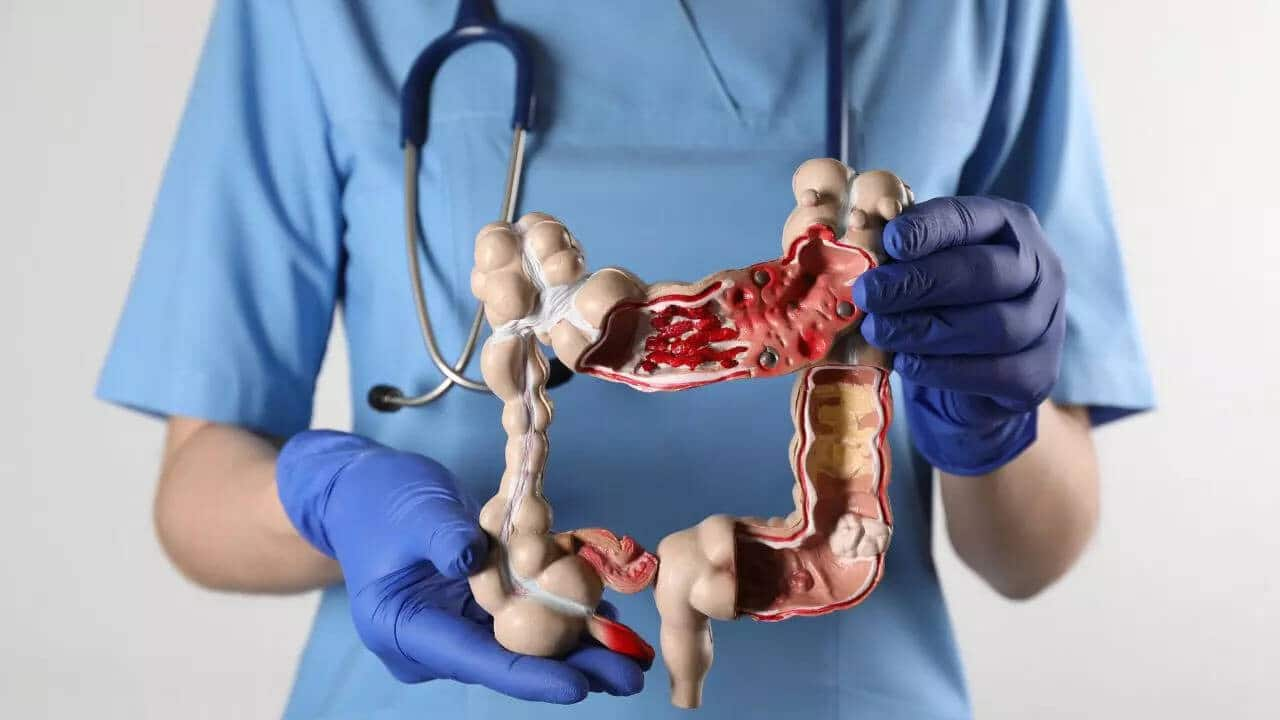
Colorectal cancer cases rising among Indian adults under 50: Report
What's the story
India is witnessing a significant rise in colorectal cancer cases among adults under 50, with a reported increase of 20.6%, the Times Now reported. This disease, typically associated with older age groups, is now rapidly affecting younger adults, it said. Doctors said that this abrupt change requires urgent attention from healthcare professionals, policymakers, and the public to address the emerging crisis effectively, according to the report.
Disease details
What is colorectal cancer
Colorectal cancer, also known as colon cancer, develops in the colon or rectum of the large intestine. It often begins as polyps in the colon and rectum that can eventually turn into colon cancer. Globally, it is one of the most common cancers and ranks third in the United States, as per the Centers for Disease Control and Prevention.
Health concern
Rise in colorectal cancer among younger adults
Dr Neeraj Dhingra, Consultant, Radiation and Clinical Oncology at Ruby Hall Clinic, Pune, highlighted the disturbing trend of increased colorectal cancer incidence among younger adults, the Times Now said. He emphasized that early detection is crucial for effective treatment and improved survival rates. Symptoms include persistent changes in bowel habits such as diarrhea or constipation, presence of blood in stool, abdominal pain or cramping, unexplained weight loss, and persistent fatigue.
Causes
Factors contributing to the rise in colorectal cancer
The surge in colorectal cancer cases among younger adults is attributed to several factors. These include dietary shifts toward Western patterns characterized by high consumption of red and processed meats and reduced fiber intake, sedentary lifestyles leading to obesity, genetic predispositions, and exposure to environmental pollutants. A recent study by the American Cancer Society published in The Lancet Public Health found that 17 cancer types, including colorectal cancer, are more common in recent generations.
Prevention
Preventive measures and expert advice
Preventive measures against colorectal cancer include adopting a balanced diet rich in fruits, vegetables, whole grains, and lean proteins, regular physical activity, routine screening through colonoscopy, reducing or eliminating tobacco use and moderating alcohol intake. Dr Pooja Babbar, Consultant, Medical Oncology, CK Birla Hospital, Gurugram, identified exposure to air pollution, early initiation of alcohol and smoking consumption, industrialization and the availability of ultra-processed food as reasons for the increased cancer risk among millennials and Gen Z.